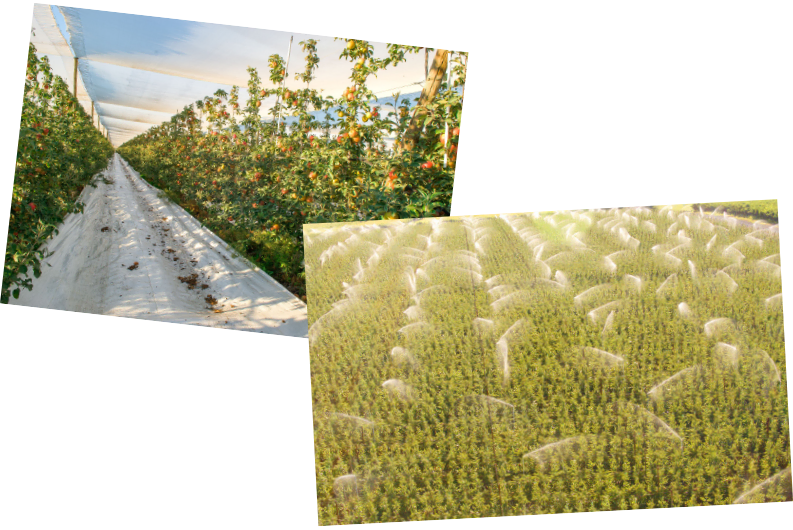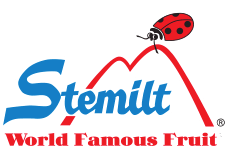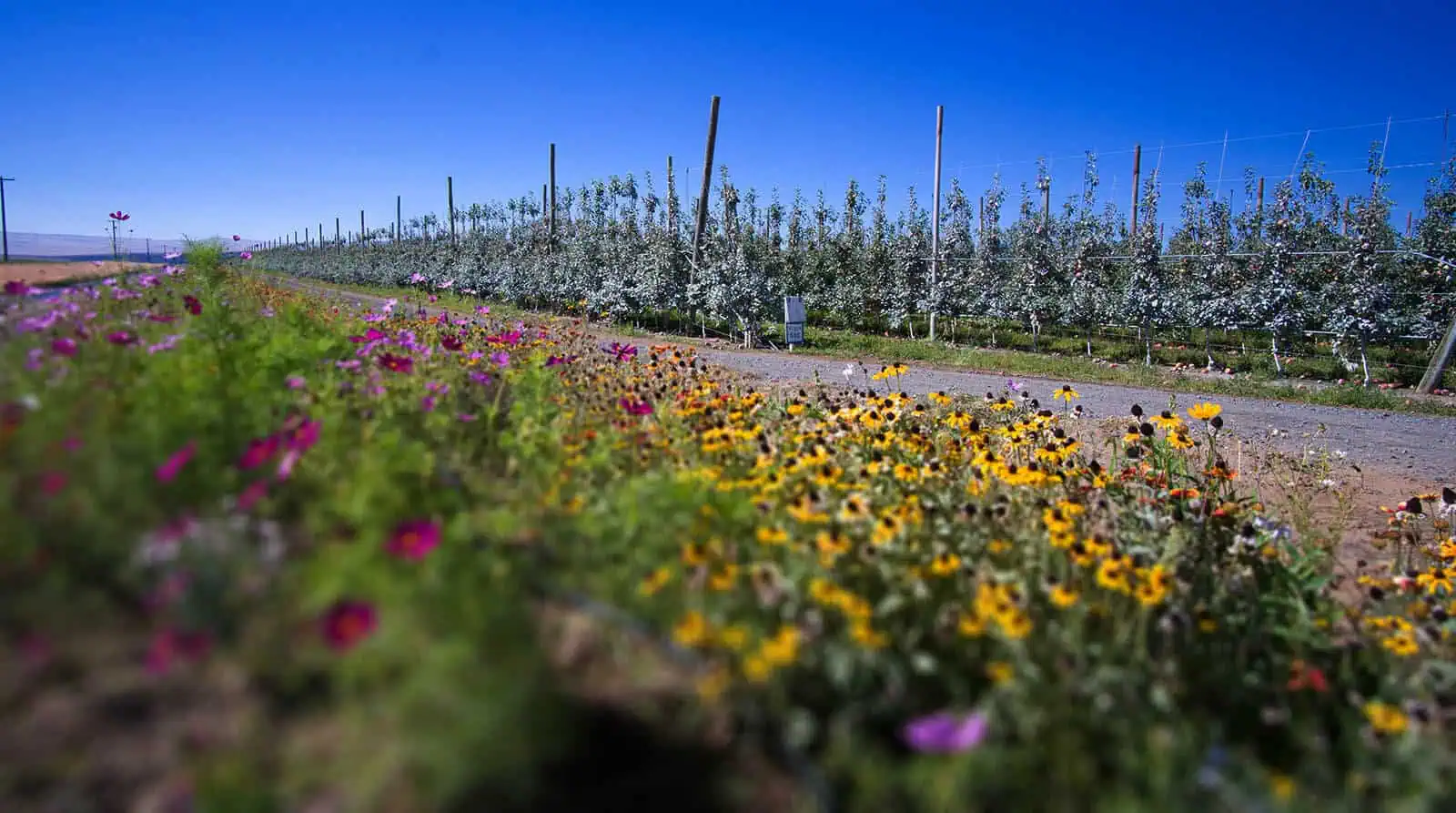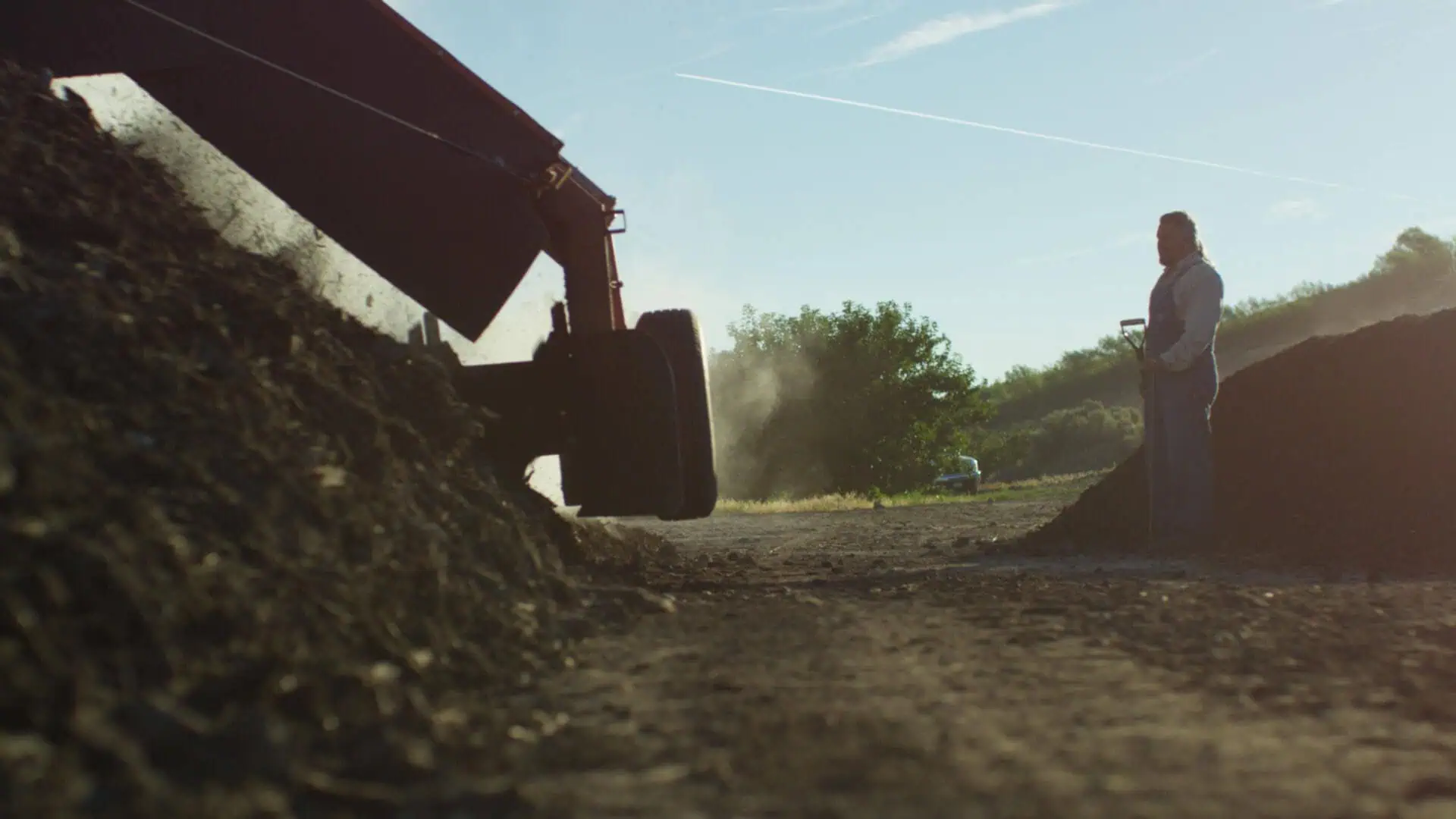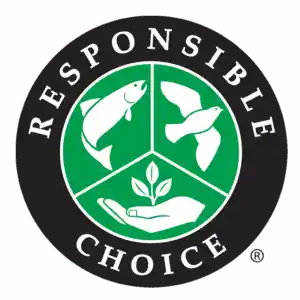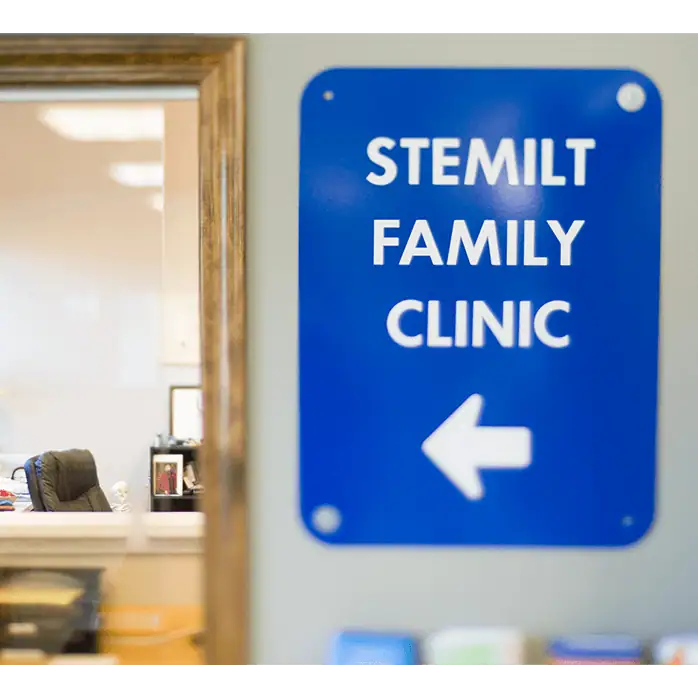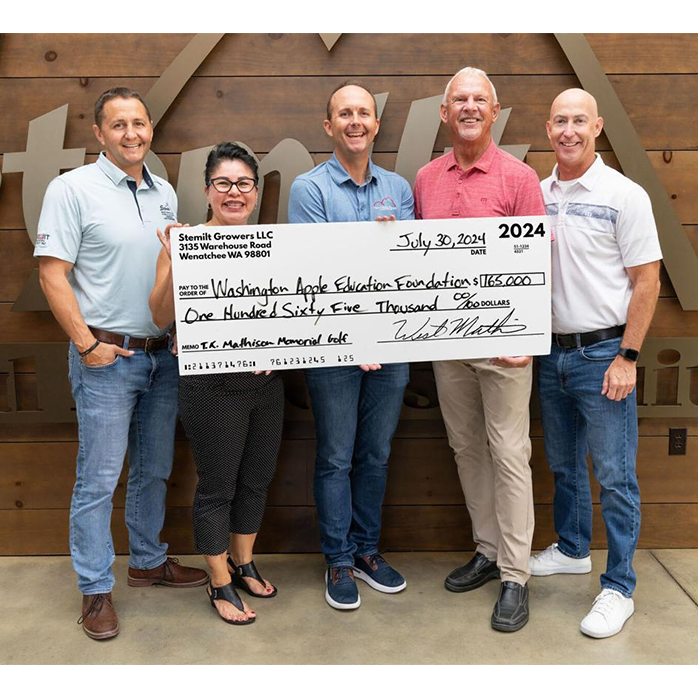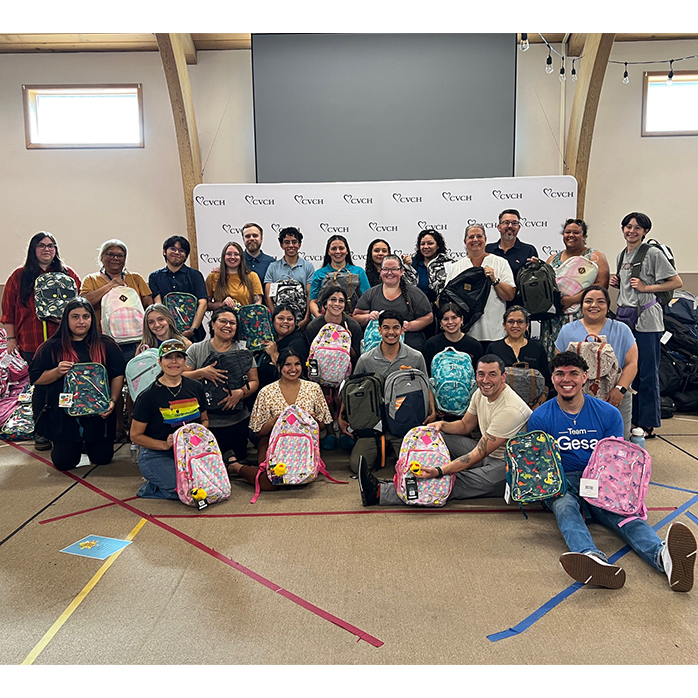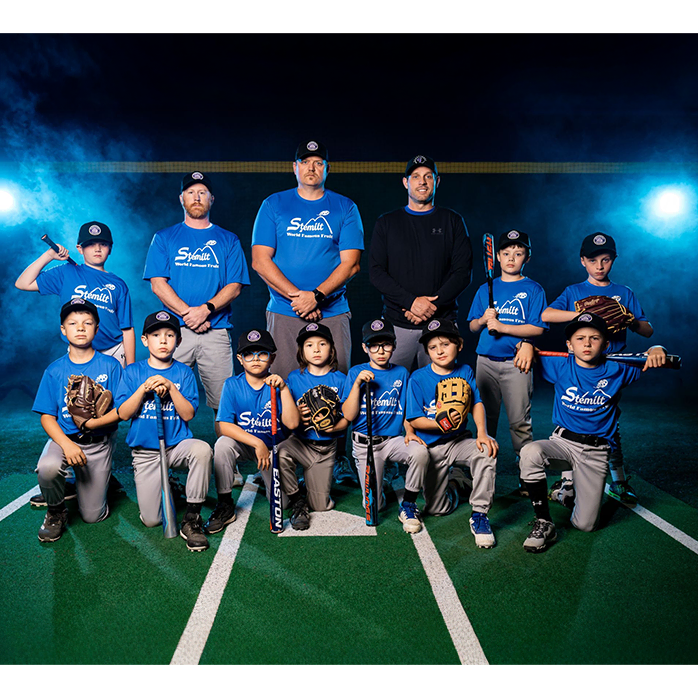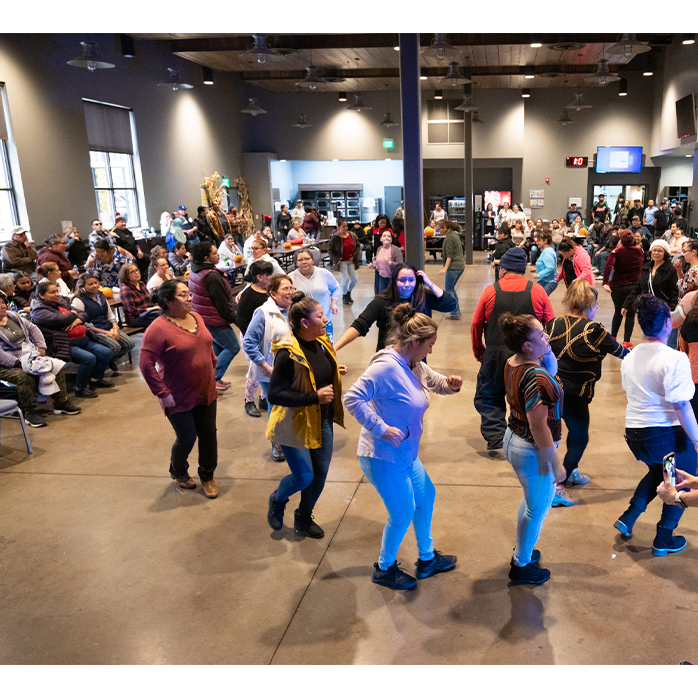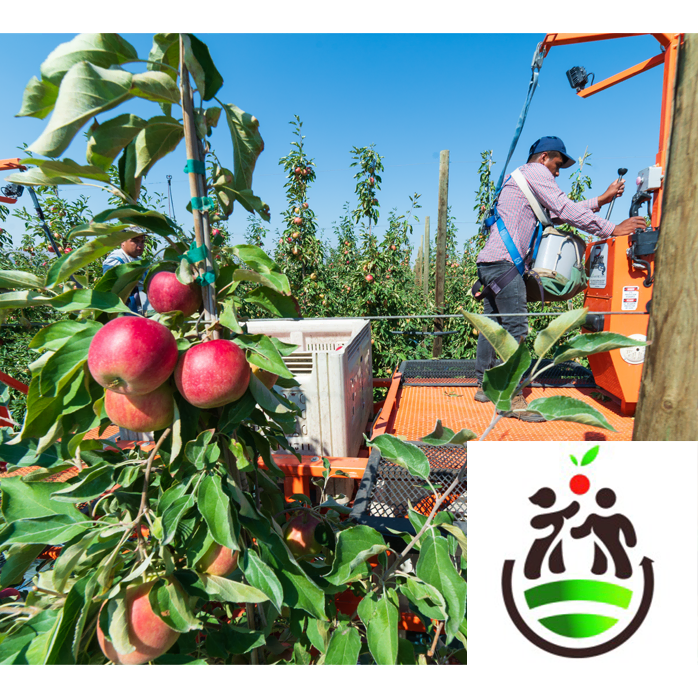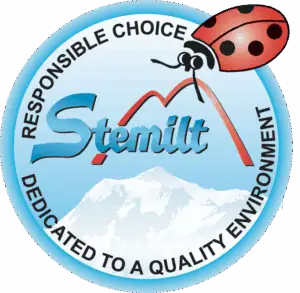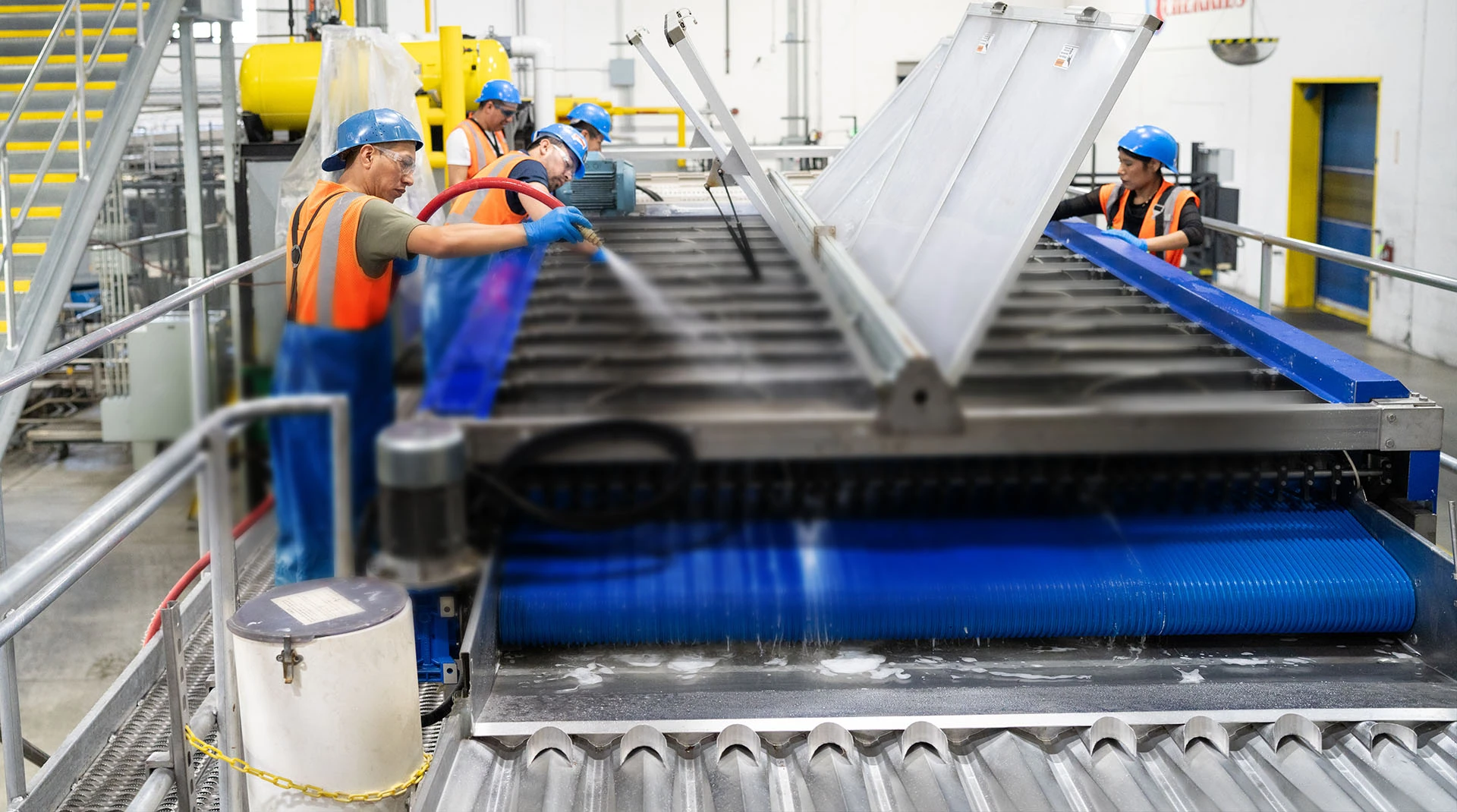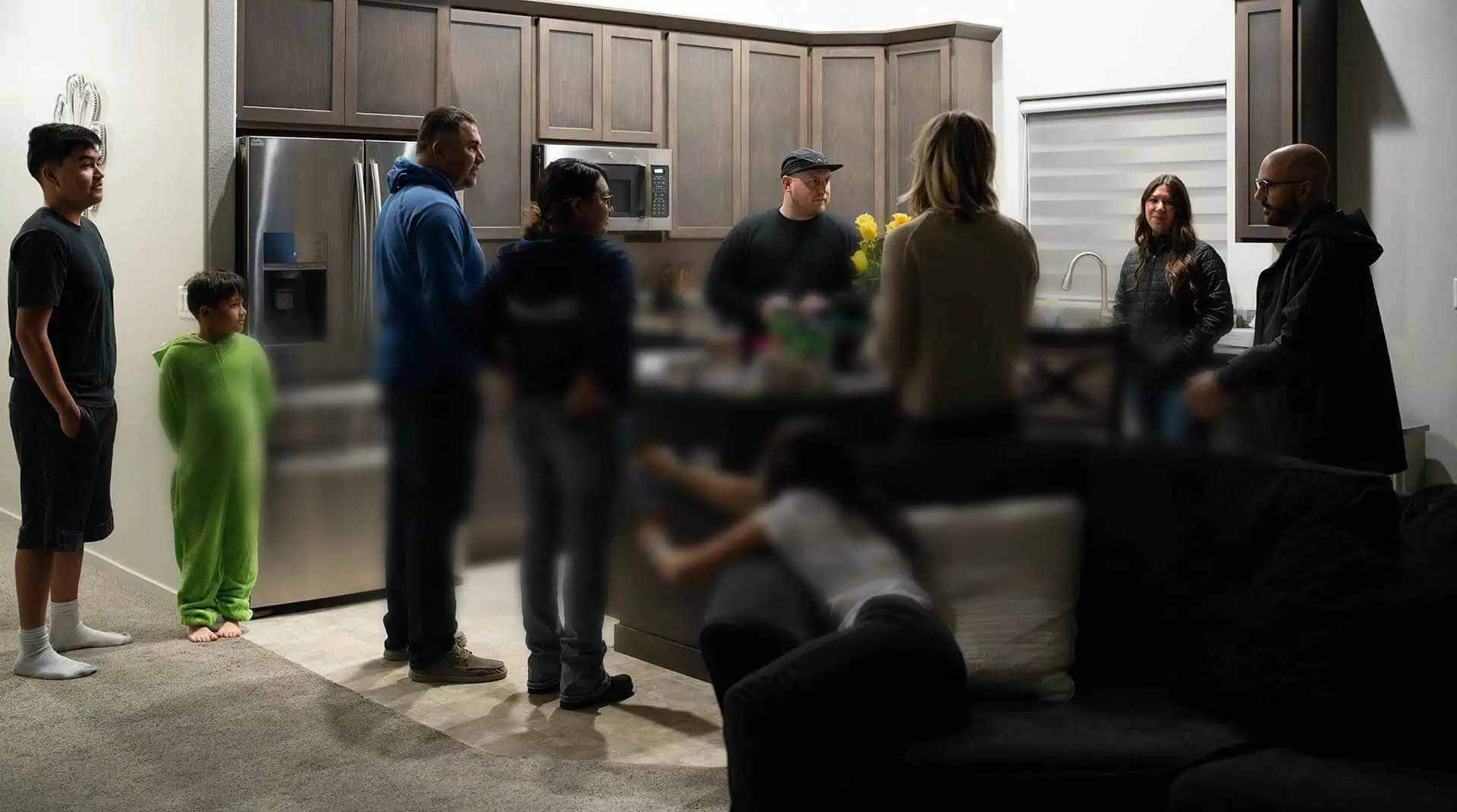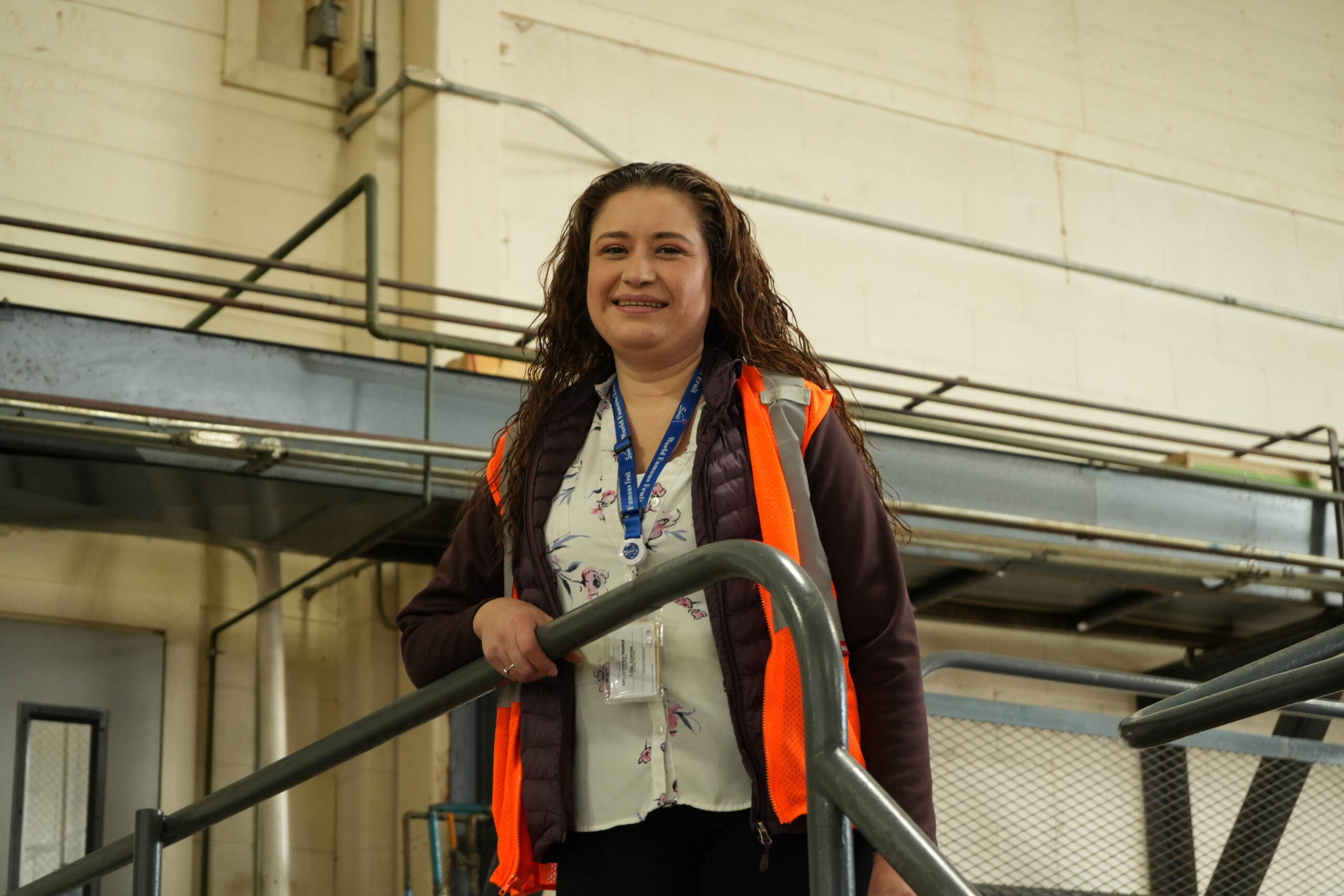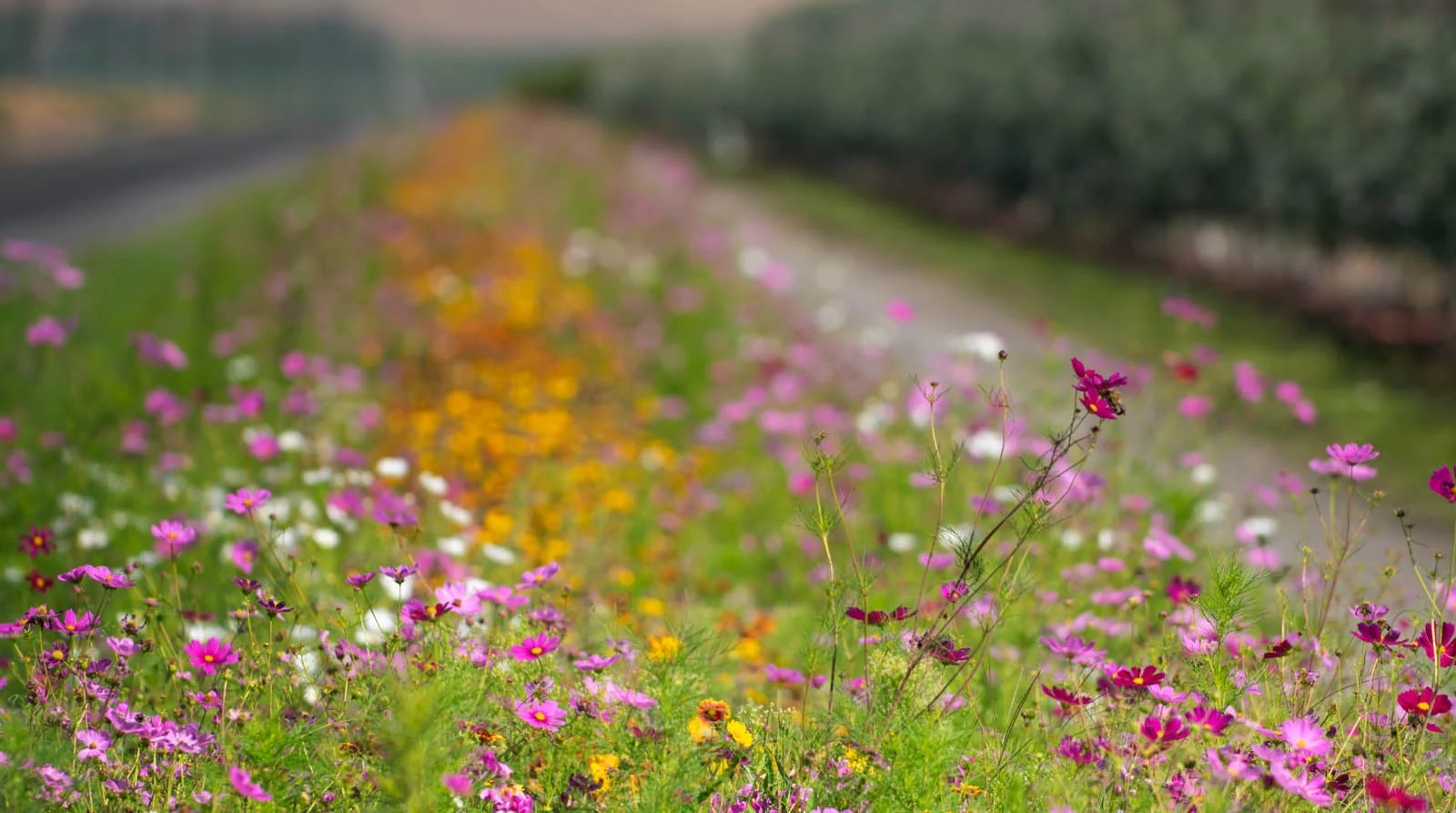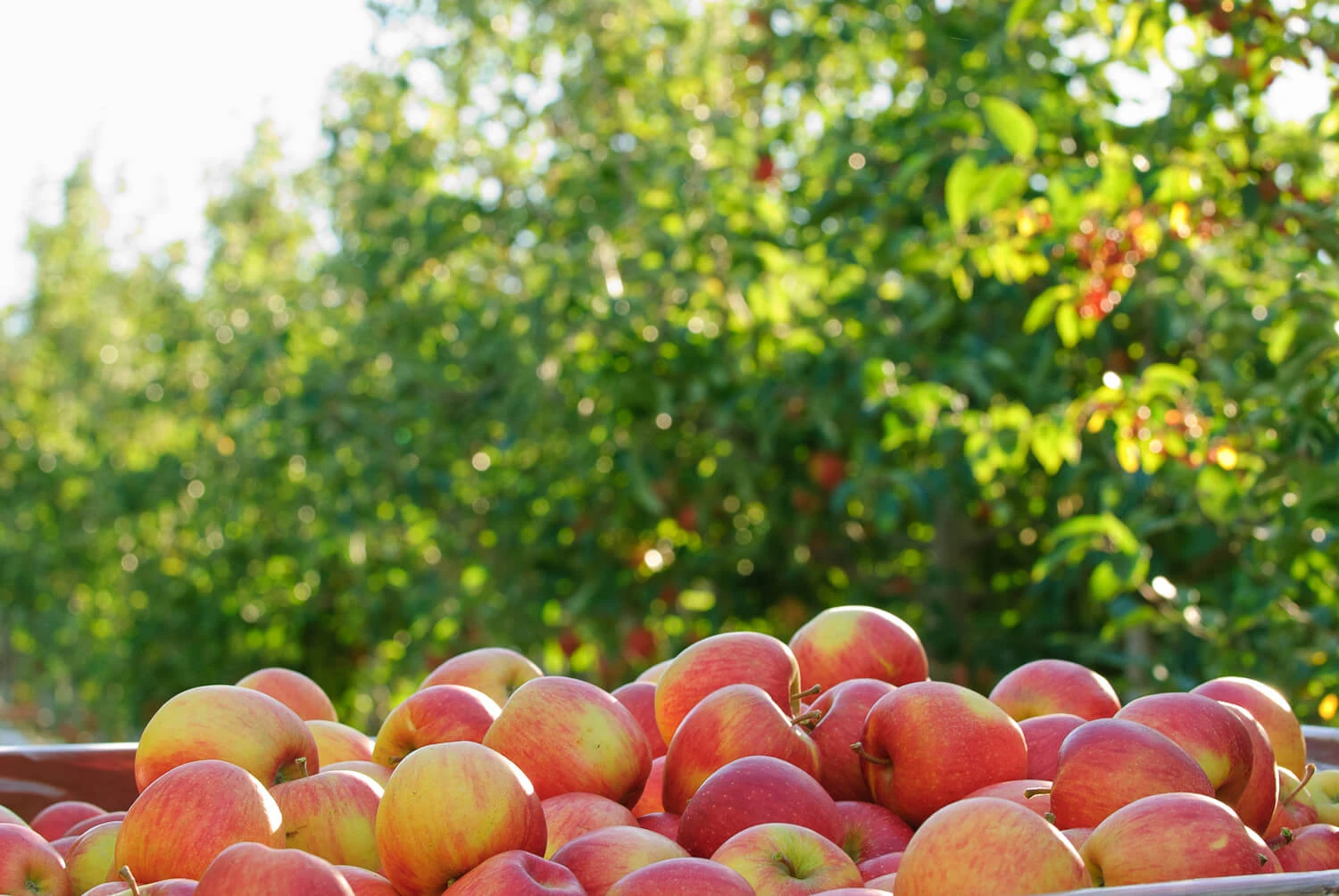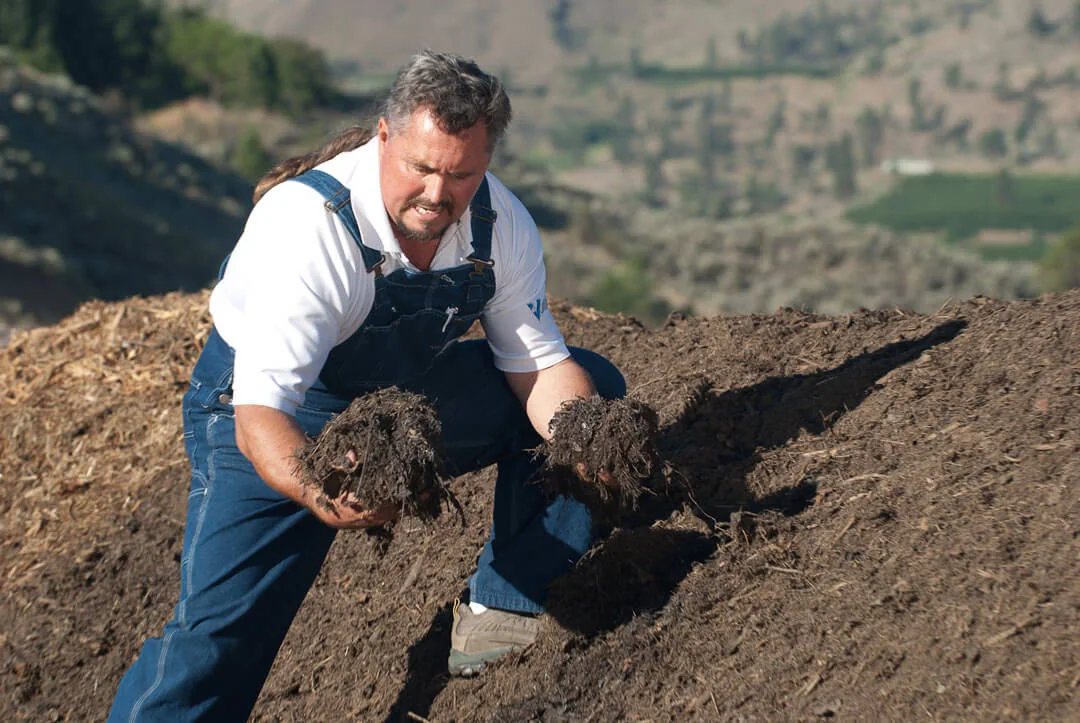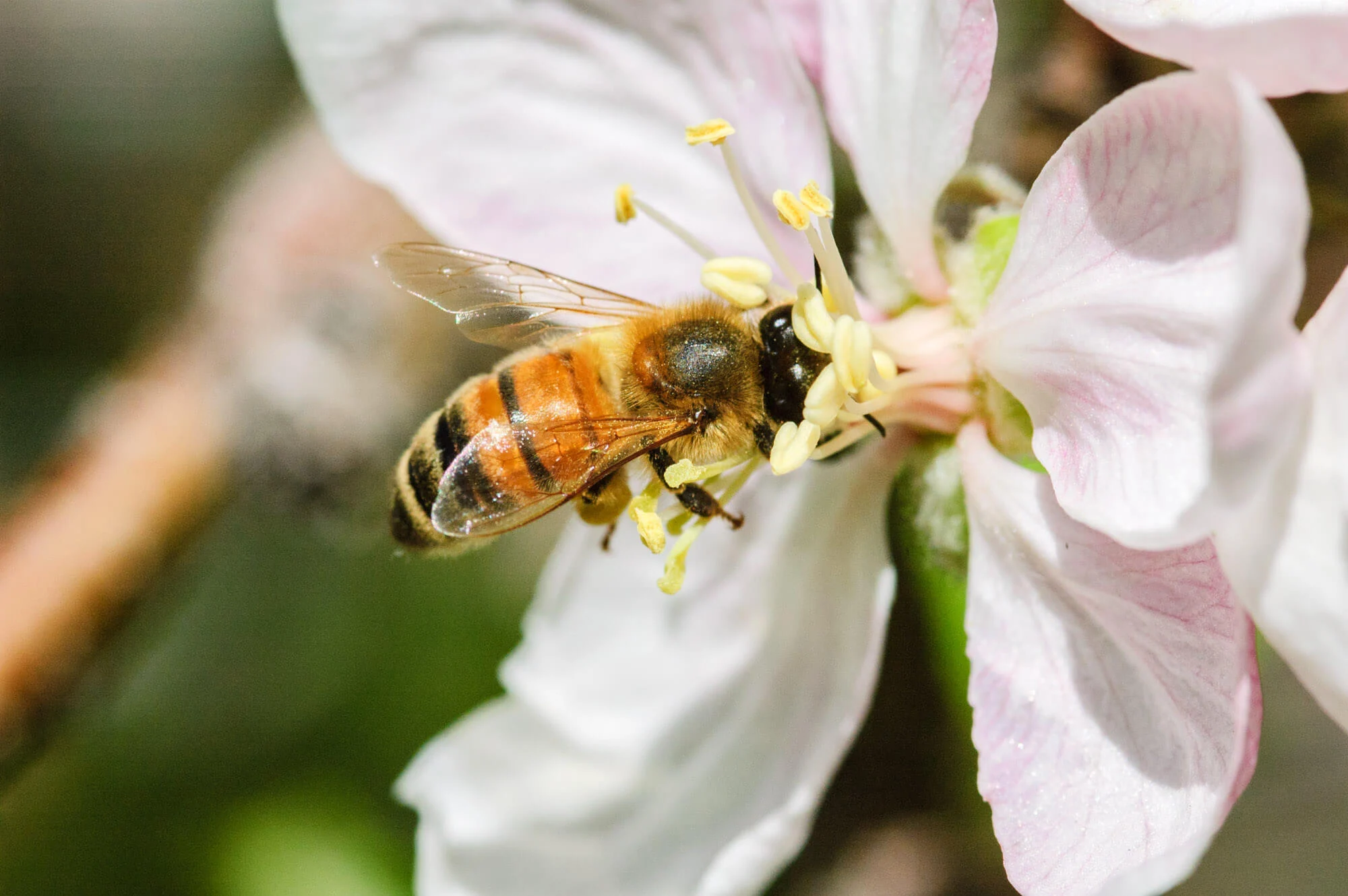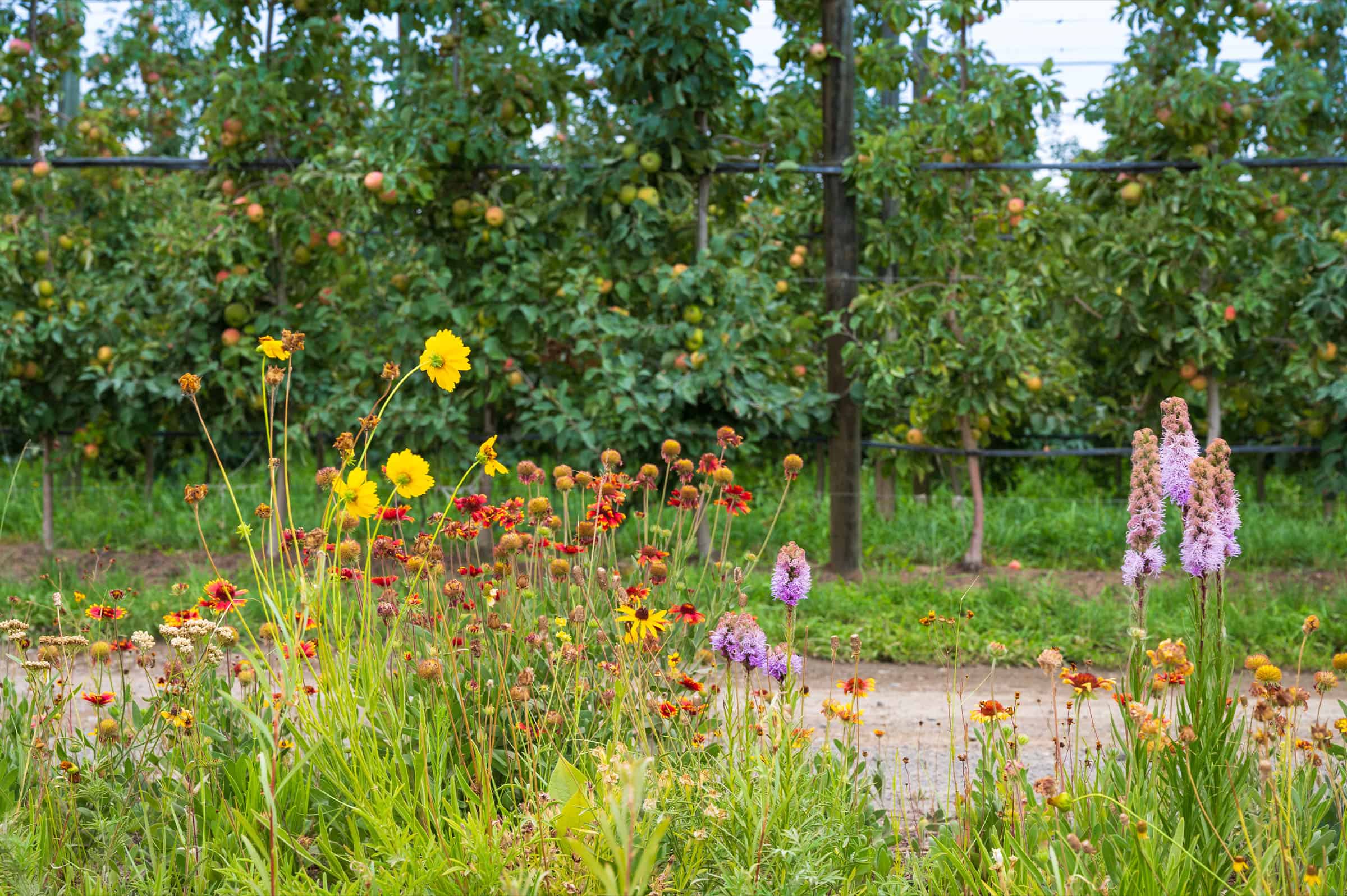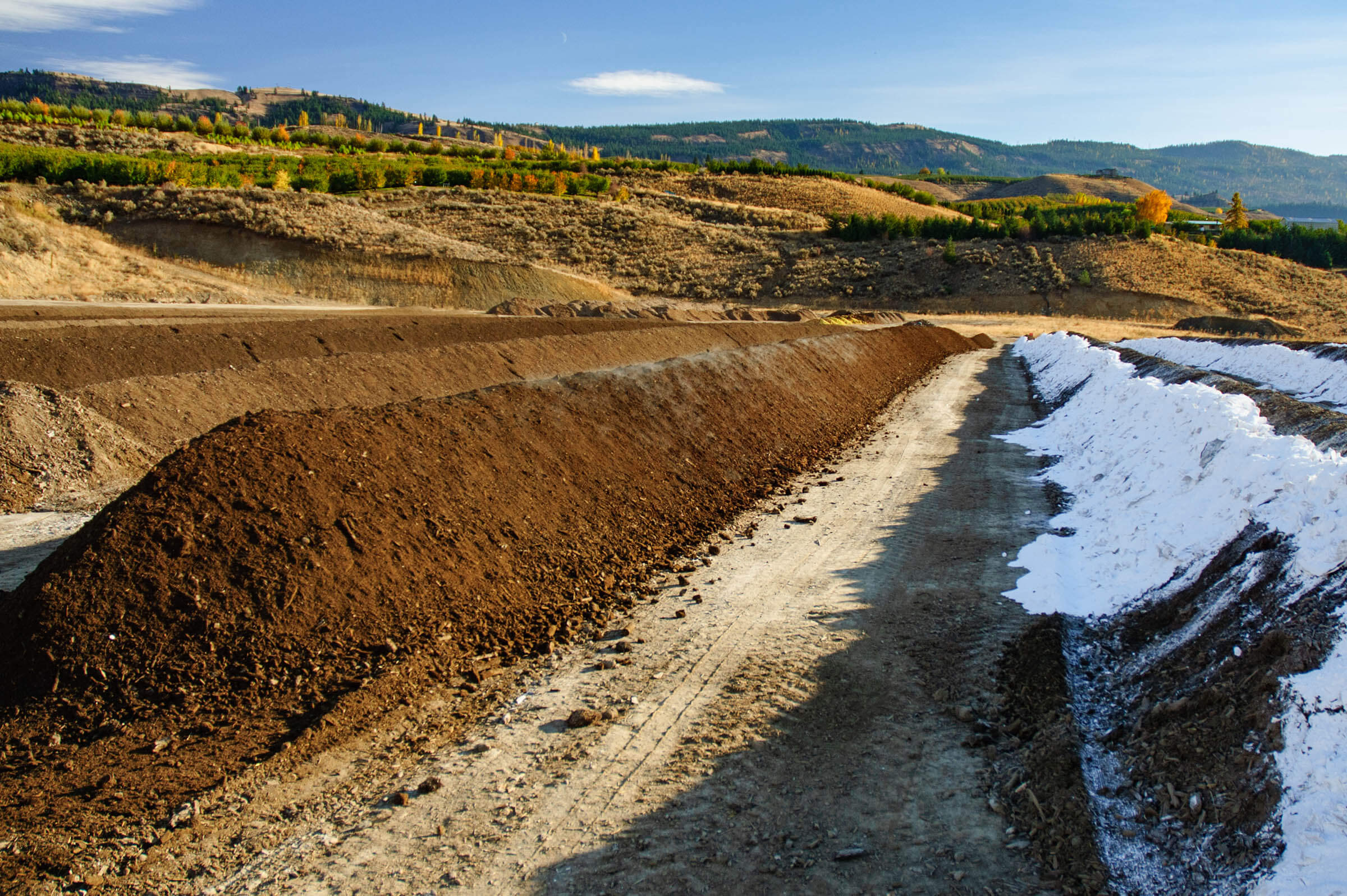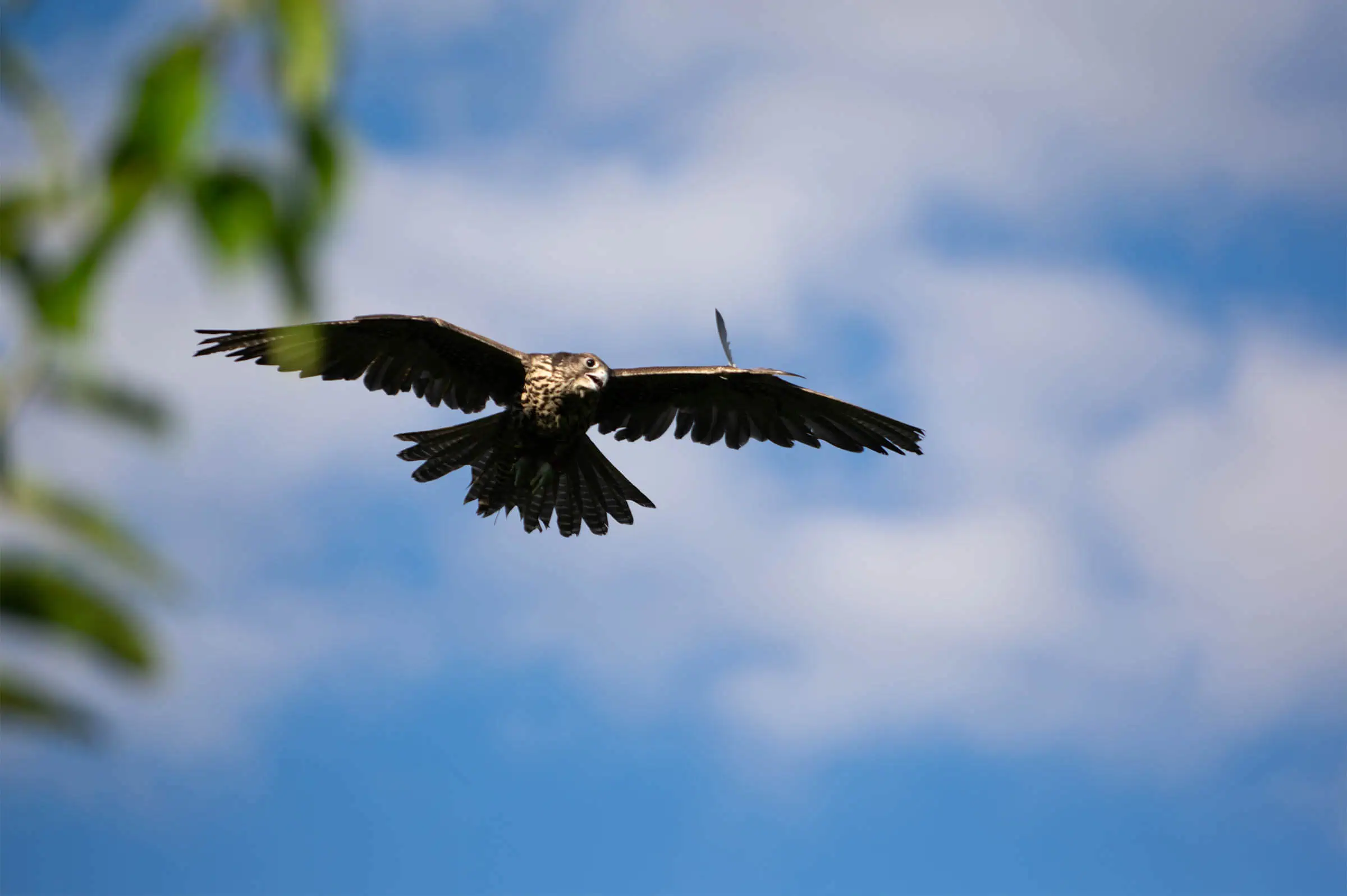The Stemilt Difference
Responsible Choice: A Legacy Of Stewardship Meets Innovation For The Future
Sustainability On The Farm
Integrated Pest Management
At Stemilt, we bring Integrated Pest Management (IPM) into the orchard opting for natural methods first when it comes to deterring unwanted pests. We carefully monitor our orchards, and if needed, will release beneficial insects such as ladybugs and lacewing larvae, or helpful birds like falcons. If natural defenses don’t do the trick, we’ll apply targeted treatments only when necessary.
Integrated Pest Methods:
- Releasing Ladybugs
- Providing Kestrel Houses
- Using Falconry to Deter Other Birds
Bee Friendly Farming
Stemilt is Bee Friendly Farming certified by Pollinator Partnership. This means we offer nutrition and habitats for bees, including 140 acres of native wildflowers around our orchards, to support pollinators.
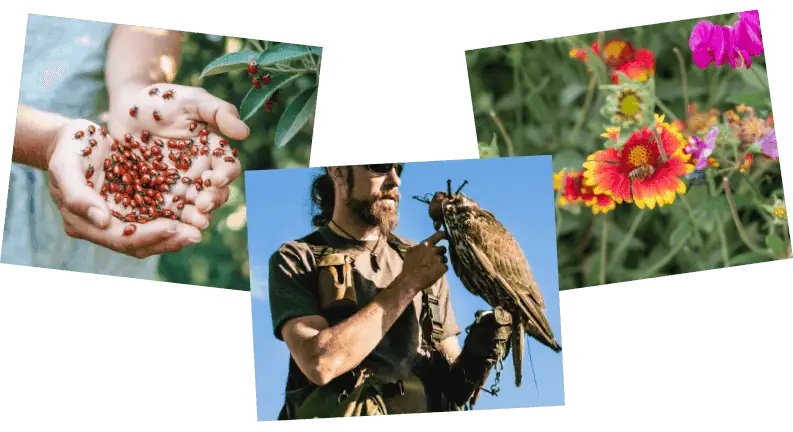
Precision Irrigation
We use tools, like moisture probes, so we can water our trees just the right amount to conserve this vital resource.
Quality H2O
We take extra care of keeping local streams and rivers clean by managing water as it flows through our orchards and protecting riverbanks. This supports salmon habitats near our orchards by preventing erosion, filtering runoff, and maintaining cool, clean water.
Production Water
Our apple production lines use a water reuse system that recirculates water up to three times across multiple stages of the process, significantly reducing overall water consumption and supporting our commitment to sustainable resource management.
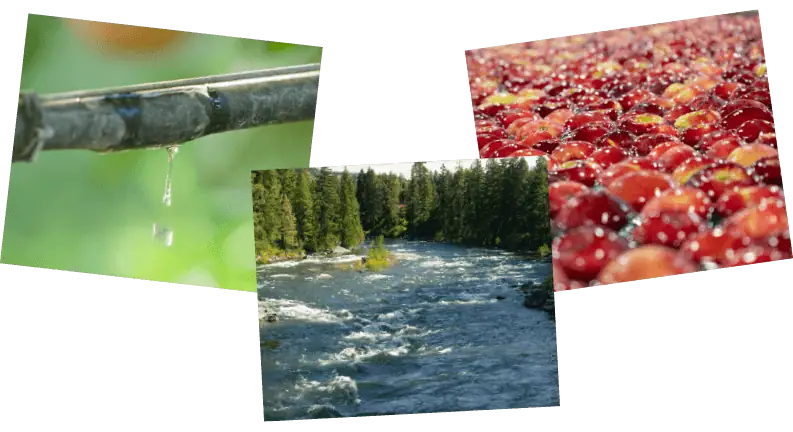
Compost
We return nutrients to the soil by using compost, which helps build healthy, living ground for our orchards, and planting cover crops. These practices also store carbon in the ground, contributing to climate-friendly farming.
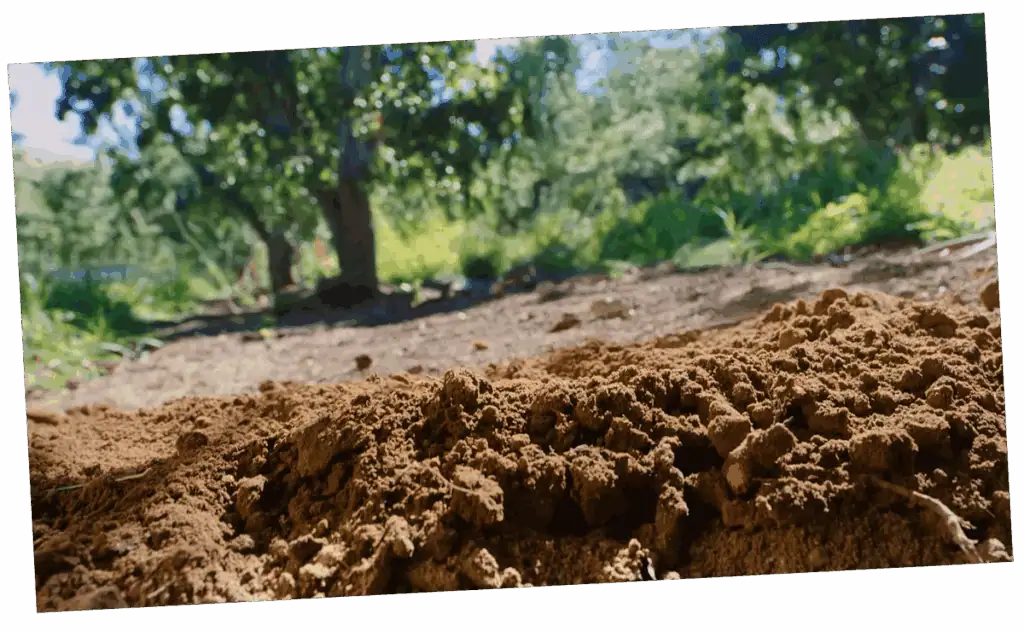
Caring for People, Growing with Purpose
Working Toward Zero Waste
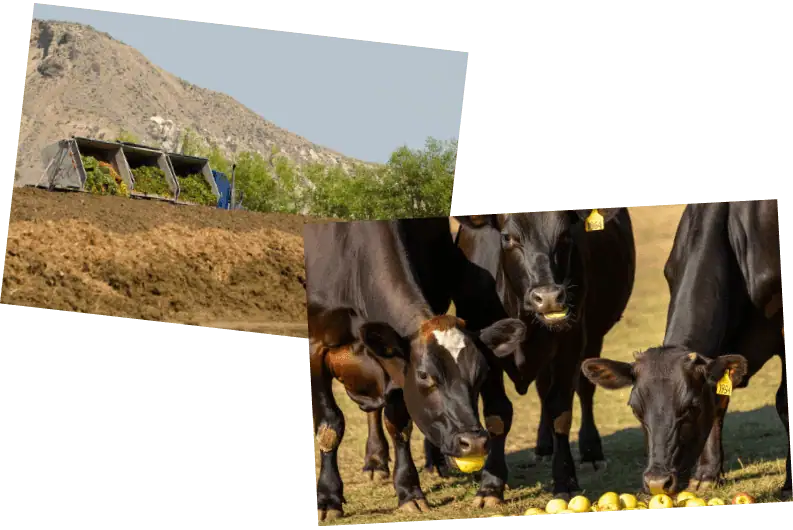
Compost
We’ve been composting at a commercial scale for over 20 years. Our 23-acre facility processes about 40,000 tons of organic material each year, much of which would otherwise go to waste. From that, we create 16,000 tons of compost that nourishes our orchards. The Stemilt Organic Recycling Facility is open to the Wenatchee public for yard waste drop-off and also receives curbside yard waste from two counties.
Cattle Feed
Any leftover fruit that isn’t fit for people is sent to nearby cattle feedlots, where it’s used as nutritious feed instead of going to waste.
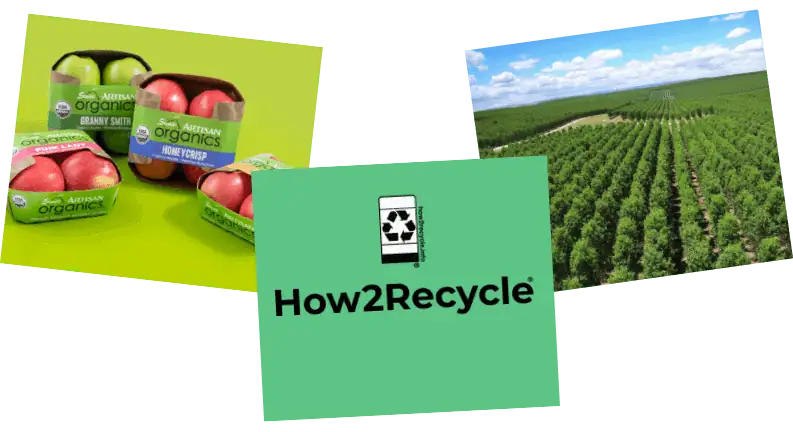
Packaging Solutions
Our EZ Band is a fiber-based solution that replaces plastic clamshells while keeping fruit secure and visible.
We offer a #4 plastic bag that can be recycled via store drop-off in many locations, and we include How2Recycle® labels to help shoppers know what to do.
We also make sure our paper and pulp packaging comes from responsibly managed forests, using materials certified by SFI or FSC.
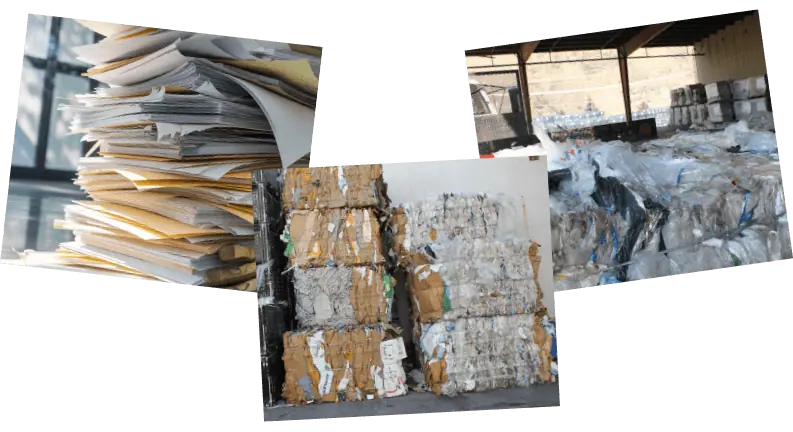
Materials Recycling at Facilities
We recycle an average of 72,500 tons of material each year, including paper, cardboard, plastics, and metals.
Through our partnership with Keyes Packaging, we recycle over 2 million pounds of cardboard each year into upcycled fruit trays, creating a local, circular system that gives the packaging a second life.
Legacy
We do business the way our founder intended. He used to say, “we’re only caretakers of the land for a short amount of time, so we must work to leave it as good as we can, or better if we can.” – Tom Mathison.
Commitment
We added the ladybug to Stemilt’s logo in 1989, the year we began Integrated Pest Management and farming organically. It symbolizes our commitment to our environmental stewardship, and the value of this insect to orchardists.
Climate & Clean Energy
Efficiency & Innovation In Action
We’re investing in energy efficiency and electrification projects across our operations to lower emissions and reduce reliance on fossil fuels. 80% of our forklifts are now electric.

Hydropower & Solar
Stemilt fruit grown in Washington is packed at facilities powered by 100% renewable electricity, thanks to local hydropower and our participation in Chelan County’s Sustainable Natural Alternative Power (SNAP) Program.
We’re also expanding our on-site solar, with approximately 3,000 new panels across four acres at our California cherry packing facility in Stockton, CA.
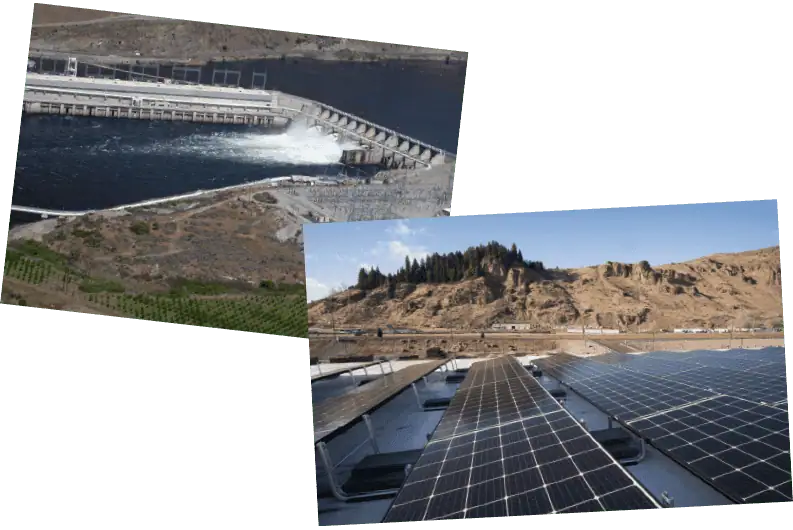
Building Resilience
Did you know apples get sunburned, too? Apples can get sunburned from extreme heat, not just sunlight. Sunburn is a leading cause of apple damage that keeps fruit from reaching the market.
We’re adapting to climate affects such as extreme heat with tools like shade cloth and overhead cooling to protect our fruit.
We’re also taking care of our team by adjusting schedules and making sure everyone stays safe during hot weather and smoke events.
